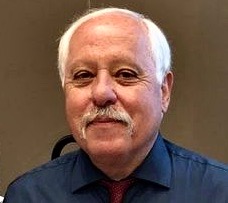For several seasons at the end of the ‘70s, Kelly Tjaden and I worked
as wilderness rangers -- dream jobs for a pair of mountain climbers and
backcountry aficionados -- covering portions of two massive wilderness areas (by
Lower 48 standards) in the North Cascades of Washington: Glacier Peak and
Alpine Lakes.
Most assignments were fairly mundane: grading trails,
digging out water bars, installing signage, locating backcountry toilets and
the like. However, on many trips, we could be subject to unpleasantness: biting
insects, summer storms, sore muscles and days (or even more than a week) without a shower. Did I mention the bugs?
And truly experiencing the land requires very basic -- sometimes artistic, sometimes boring -- dirty work. Sure, we were economically motivated, with tuition and student loan commitments, but there was more. We learned a sense of purpose, along with a work ethic, and how to live within our means. We developed a responsibility for the necessities of life, existing within a set of natural limits.
Working on trail crew, or as a wilderness ranger, was more demanding, more rewarding -- more real -- than we could ever have possibly imagined. We acquired new skills and lived in a way where our surroundings mattered. The bonus? Laboring in Valhalla. Climbing mountains. Discovering wildflowers. Backpacking through wilderness very few people will witness.
Most work was straightforward and rather humdrum.
Occasionally, however, we’d receive the odd, and ultimately memorable, task to
destroy a squatter’s cabin hidden in the wilderness. That was the USFS
rule of the day: illicit cabins in the wild would be torched, a perfect
assignment for former firefighters.
This gig would be no small feat. We would have to
bushwhack through primitive forest -- old growth cedars eight feet in
diameter, Devil’s club taller than a house and prolific vine maple that made
walking difficult -- with no clear route. We half expected a pteranodon or
pterodactyl to swoop by as we negotiated the thick brush.
When we finally caught up, Kelly asked: “what’s the rush,
Paul?” He replied that he had cut his toes off in a mowing accident as a
kid and that he was unable to slow or stop without sitting down. We agreed to
keep in touch with a verbal signal: “Raoul!” That way, we could track him as we battled through the vine maple thicket.









1 comment:
The pictures you paint with your words are magical. My imagination was running loose trying to picture the journeys- and chasing Raoul! Thank you!!!!!
Post a Comment